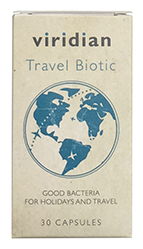My organic life, by Helen Browning
Helen Browning OBE, 54, is an organic tenant farmer in Wiltshire and chief executive of the Soil Association. She has been chair of the Food Ethics Council since 2002. 'I grew up on the 1,350-acre livestock and arable farm that I now run. I always knew I wanted to farm and did a degree in agricultural technology. I had all the usual aspirations about getting huge yields, but then I saw the countryside changing, hedges being ripped out, wildlife disappearing and poor welfare of farm animals – especially pigs and chickens. Organic farming seemed like a possible solution, so I started to experiment.
One thing I noticed from early on was the effect that ranging freely on clover-rich, organic pastures has on the health of our farm animals. Their coats are much shinier, they’re more vigorous and playful, their fertility improves and we see less disease. We also make a point of minimising stress in every way.
The cornerstone of health for all living creatures is a good diet. When I eat well, I cope better. I see the same with my daughter Sophie, 26, my partner Tim Finney and my colleagues.
Recent research published in the British Journal of Nutrition showed significant nutritional differences between organic and non-organic food. International experts analysed 343 studies and found that organic fruit, vegetables and cereals provide additional antioxidants equivalent to eating one or two extra portions of fruit and vegetables daily. The report showed significantly lower levels of toxic heavy metals in organic crops. The team found that organic meat and dairy contain 50 per cent more omega-3 essential fatty acids. Organic crops are not treated with the pesticide glyphosate, designated a probable carcinogen by the World Health Organisation.
Eating organic is often thought to cost more. But it can be affordable for most budgets if you base meals on pulses and vegetables, which are very good value (particularly box schemes) – or grow your own – and eat less meat, in line with current health advice.
One of the most serious risks to human health is overusing antibiotics in conventional livestock farming, which contributes to antibiotic resistance in people. Antibiotics tend to be used routinely to prevent disease, particularly in pigs in intensive systems, whereas organic farmers need to use them far less.
My energy levels are usually high, which I put down partly to drinking fresh juices or smoothies every morning and doing ten to 15 minutes of yoga first thing, before I get caught up in the maelstrom of the day. Walking the farm and playing squash are my main ways of unwinding, but Tim and I go away every February, do loads of yoga and have fun. Without that, my battery runs down.'
• For more information on Organic September, visit soilassociation.org/organicseptember
WHY GO NATURAL?
Organic farmers work with nature, rather than trying to dominate it. Organic means higher levels of animal welfare, lower levels of pesticides, no manufactured herbicides or artificial fertilisers and more environmentally sustainable management of the land, which means more wildlife.
THRE OF THE BEST: PLANT-BASED COOKBOOKS
The Meat-Free Monday Cookbook (Kyle Books, £15.99*) With a foreword (and some recipes) by Paul, Stella and Mary McCartney, this offers tantalising veggie menus for every week of the year.
26 Grains by Alex Hely-Hutchinson, (Square Peg, £20*) More than 100 recipes based on grains, laced with fresh ingredients and spices for every meal, every season.
Around the World in Salads by Katie and Giancarlo Caldesi (Kyle Books, £16.99*) This globally sourced collection was triggered by Giancarlo’s gluten intolerance and their son’s migraines.
 I am a big fan of nutritional and herbal supplements by Viridian Nutrition, a small and ethical company. Forty per cent of its high-quality range is certified organic by the Soil Association (the largest number in the UK) and includes the world’s first certified organic fish oil. Holidaying abroad this summer, my dodgy digestion was very grateful for Travel Biotic (£20 for 30 capsules, viridian-nutrition.com and victoriahealth.com).
I am a big fan of nutritional and herbal supplements by Viridian Nutrition, a small and ethical company. Forty per cent of its high-quality range is certified organic by the Soil Association (the largest number in the UK) and includes the world’s first certified organic fish oil. Holidaying abroad this summer, my dodgy digestion was very grateful for Travel Biotic (£20 for 30 capsules, viridian-nutrition.com and victoriahealth.com).

